Search Results
Search
Filter results
Advanced Filters
Your search returned 288 Solutions
-
Livelihoods resource centres
As "one-stop-shops" Livelihoods Resource Centres (LRCs) provide training, career guidance and links between employees and employers. LRCs are delivered through local partner organisations and are unique in providing the full range of support that disabled people need when looking for jobs or becoming self-employed.
Leonard Cheshire Disability, Livelihoods resource centres, United Kingdom -
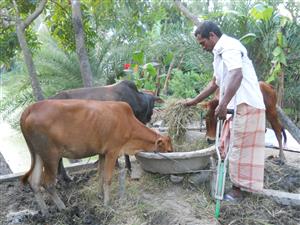
Initiating microfinancing and micro-enterprises for a whole city sub-district
In 2015, YPSA surveyed 1,250 persons with disabilities in Sitakund and organized them into 50 self-help groups. Based on their socio-economic background and personal interest, 250 persons were selected to receive interest-free loans, vocational training as well as support to establish their own businesses.
YPSA - Young Power in Social Action, Sitakund sub-district of Chittagong, Bangladesh -
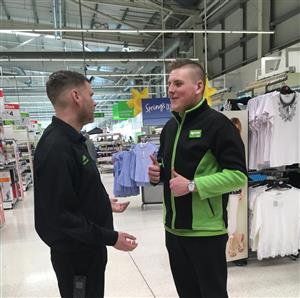
Three-step transition to professional life for young people with learning disabilities
Stepping Up supports students to develop skills and confidence for a better transition either to higher education or employment. The three stages are a school-based learning course to introduce the concepts of employment, working with a transition coordinator towards paid employment and aftercare-support.
ENABLE Scotland, Stepping Up, United Kingdom -
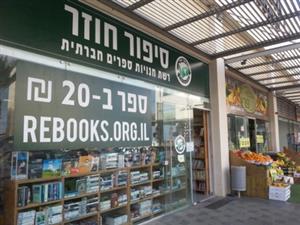
Universal training and job services for persons with psychosocial disabilities
Shekulo Tov provides job-seeking people with psychosocial disabilities with constant and flexible support. Job applicants are offered a number of options, including vocational rehabilitation, skills development, and training programmes. Participants also receive training to measure their professional progress.
Shekulo Tov Group, vocational rehabilitation training, Israel -
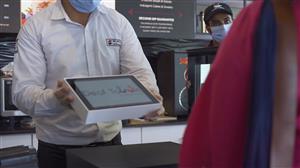
Sign language relay service with a successful scaling strategy
DeafTawk is a technology start-up that has developed a mobile application that connects deaf users with certified sign language interpreters in real time and around the clock via video calls. DeafTawk is available on both IOS and Android, and in 2020 has 14,600 users in Pakistan as well as in Singapore.
DeafTawk, DeafTawk, Pakistan -
A new approach to labour inclusion
To increase social inclusion POETA ("Partnership in Opportunities for Employment through Technology in the Americas") operates accessible centers to train people with disabilities in technology and vocational skills. In 2012, more than 1,500 allied companies also participated in awareness campaigns and activities.
Trust for the Americas, A new approach to labour inclusion, Guatemala -
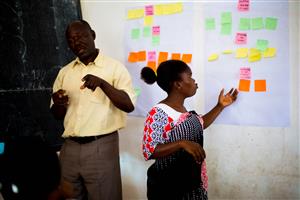
Training and online job-matching for students and graduates with disabilities
Since 2016, EmployAble Africa has been focusing on data and technology. There are online and mobile learning programmes for students and teachers, support for companies, and a job platform that works with trend analyses and auto-matching. In 2019, 560 persons were trained and 290 were placed.
Employable Africa, Envision Africa, Tanzania -
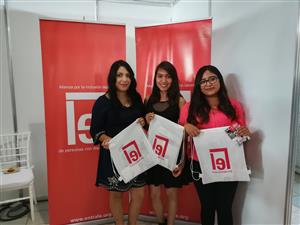
Labour inclusion index and job platform for disability-inclusive companies
Alianza Éntrale works to connect talented people with disabilities and employers by supporting companies in a number of ways, including digital training tools and certification. By mid-2020 the initiative included 847 companies and 35 NGOs with more than 9,821 people with disabilities in employment.
Mexican Business Council, Alianza Éntrale, Mexico -
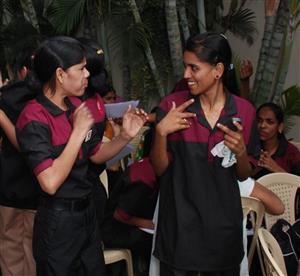
Fighting unemployment from two sides: with training centres and by influencing legal frameworks
4J sets up centres as a public-private partnership to provide vocational training for young people with disabilities from rural areas and places them in companies. Due to State Government participation in the programme, Y4J has been able to influence the legal framework towards pro-disability policies.
Youth4Jobs Foundation, Centre for Persons with Disability Livelihoods (CPDL), India -
Dialogue in the Dark
Dialogue in the Dark is an experience in total darkness where visitors to the exhibitions, led by blind guides, experience a series of ordinary situations without eyesight. Between 1988 and 2012 over 7 million people have experienced Dialogue in the Dark worldwide, and over 7,000 blind candidates have found employment through it.
Dialogue Social Enterprise GmbH, Dialogue in the Dark, Germany